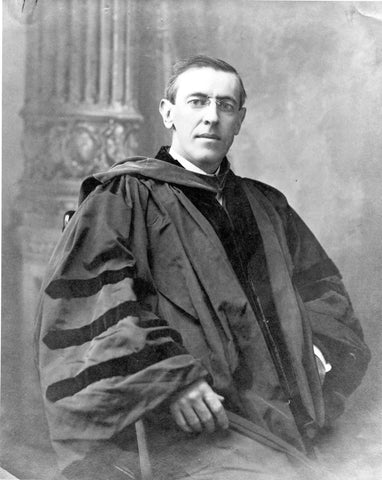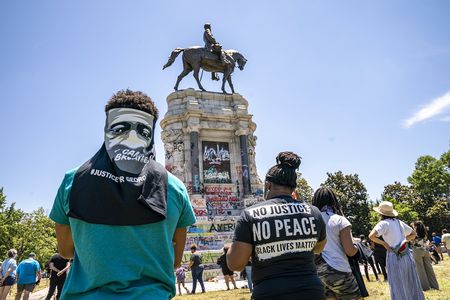Princeton University to remove Woodrow Wilson's name from public policy school and residential college

Princeton University will remove the name of President Woodrow Wilson from its school of public policy and a residential college, the school said in a statement Saturday.
The Princeton University Board of Trustees voted Friday to rename the policy school the Princeton School of Public and International Affairs, the statement says. The college formerly named for him will be known as "First College" in recognition of its "status as the first of the residential colleges that now play an essential role in the residential life of all Princeton undergraduates," according to the statement.
"We have taken this extraordinary step because we believe that Wilson's racist thinking and policies make him an inappropriate namesake for a school whose scholars, students, and alumni must be firmly committed to combating the scourge of racism in all its forms," the release says.

Confederate statues are coming down following George Floyd's death.
Wilson was the country's 28th president from 1913 to 1921. He previously had been the president of Princeton and the governor of New Jersey.
"Wilson's racism was significant and consequential even by the standards of his own time," Princeton President Christopher Eisgruber said in a statement. "He segregated the federal civil service after it had been racially integrated for decades, thereby taking America backward in its pursuit of justice. He not only acquiesced in but added to the persistent practice of racism in this country, a practice that continues to do harm today."
Once defended segregation and slavery
He once called racial segregation "a benefit" and said slaves "were happy and well-cared for." He denied admission to African American men and sought to exclude them from the school's history.
The university says it is inappropriate to name a public affairs building after "a racist who segregated the nation's civil service after it had been integrated for decades." It says the point was made more urgent by the recent killings of Breonna Taylor, George Floyd and other African Americans.
"We take this action while continuing to recognize and respect Woodrow Wilson's exceptional achievements," the statement says. "Wilson improved Princeton as much as or more than any other individual in the University's long history. Though scholars disagree about how to assess Wilson's tenure as president of the United States, many rank him among the nation's greatest leaders and credit him with visionary ideas that shaped the world for the better."

Woodrow Wilson
Wilson's name will remain on The Woodrow Wilson Award, the university's highest honor for an undergraduate alumnus or alumna, which is conferred annually. Since it is the result of a gift, the university must keep the name, according to the university.
"The award explicitly honors specific and positive aspects of Wilson's career, and it, unlike the School or the College, does not require students to identify with the Wilson name in connection with their academic or residential programs," the statement said.
This week, trustees at New Jersey's Monmouth University voted to remove Wilson's name from its Great Hall.
The Great Hall serves as the campus's main hub.
Monmouth said it will find ways to honor its lead designer, Julian Abele, who was one of the first professionally trained African American architects.
On Sunday, New York Mayor Bill de Blasio's office said a statue of President Theodore Roosevelt in front of the American Museum of Natural History will be removed.

"The American Museum of Natural History has asked to remove the Theodore Roosevelt statue because it explicitly depicts Black and Indigenous people as subjugated and racially inferior," de Blasio's office said in a statement. "The city supports the museum's request. It is the right decision and the right time to remove this problematic statue."
